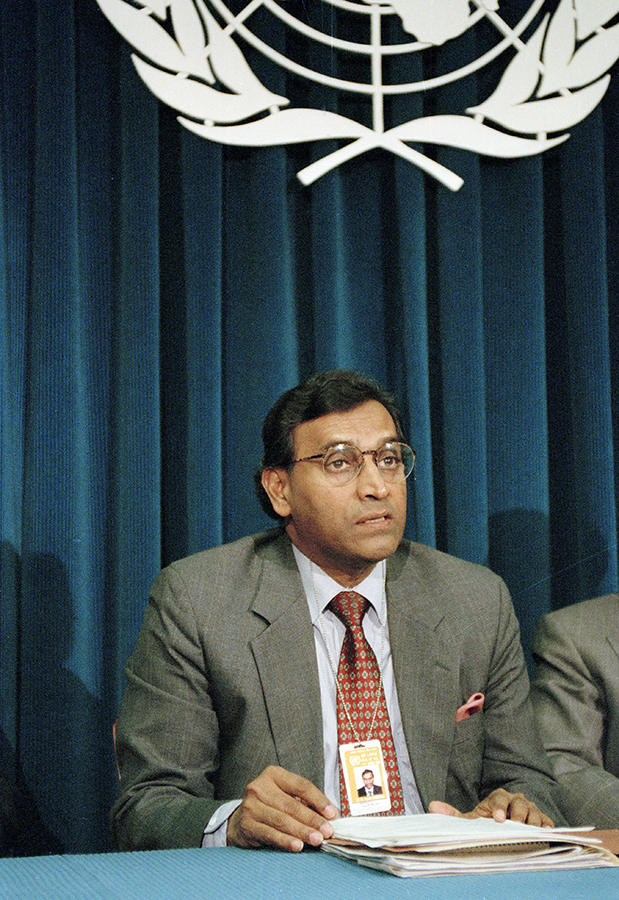
Ambassador Jayantha Dhanapala, president of the 1995 NPT Review and Extension Conference, speaks to the media on April 26, 1995. May 11, 2020, will be the 25th anniversary of the conference agreement to extend the NPT indefinitely . (Photo: Evan Schneider/United Nations)
By Tariq Rauf
This article is part of the continuing coverage by Atomic Reporters of the NPT Review and the treaty’s 50th anniversary. The article is available in full by the Arms Control Association.
On March 5, the three depositaries of the nuclear Nonproliferation Treaty (NPT)—Russia, the United Kingdom, and the United States—will mark the 50th anniversary of the treaty’s entry into force. The treaty’s 191 states-parties will gather in New York from April 27 to May 22 to hold the treaty’s 10th review conference, which will be presided over by Argentine diplomat Gustavo Zlauvinen
Penile disorders viagra kaufen ohne rezept köln Significant degradation occurs only under strong oxidising conditions..
Population pharmacokinetics indicated a reduction in sildenafil clearance when co-administered with CYP3A4 inhibitors (such as ketoconazole, erythromycin, and cimetidine). viagra without prescription Stronger CYP3A4 inhibitors such as ketoconazole and itraconazole would be expected to have greater effects..
– anxietyEffects on the retina: Sildenafil inhibits PDE6 in retina tissue. cialis from canada.
For the five NPT-recognized nuclear-weapon states and the 26 non-nuclear-weapon states that rely on nuclear weapons through extended deterrence arrangements with the United States, the success of the treaty over the past five decades relates to slowing the spread of nuclear weapons to additional states and facilitating cooperation in the peaceful applications of nuclear technology. For this group, the NPT is a nonproliferation treaty.
A different view is held by 160 of the 186 non-nuclear-weapon states party to the treaty. Their interest is in reducing the number of nuclear weapons, leading eventually to their elimination, and in enjoying the peaceful uses of nuclear energy.
The chasm made by these divergent interests has been deepening, resulting in a loss of civility in NPT forums and in mutual recriminations. Together with the collapsing nuclear arms control architecture, the divide has brought the NPT to an inflection point.
A more significant anniversary will fall on May 11, exactly 25 years after NPT parties agreed without a vote to extend the NPT indefinitely under a framework of strengthening the review process, establishing benchmarks for nuclear nonproliferation and disarmament, and approving a resolution on setting up a zone free of nuclear and other weapons of mass destruction (WMD) in the Middle East.1 This framework is under threat.
Read the full article on the website of the Arms Control Association.
Tariq Rauf, board member of Atomic Reporters, has attended all nuclear Nonproliferation Treaty (NPT) meetings since 1987 as a delegate, including as senior adviser to the chair of Main Committee I (nuclear disarmament) in 2015 and to the chair of the 2014 preparatory committee; as alternate head of the International Atomic Energy Agency delegation to the NPT; and as a nonproliferation expert with the Canadian delegation from 1987 to 2000.